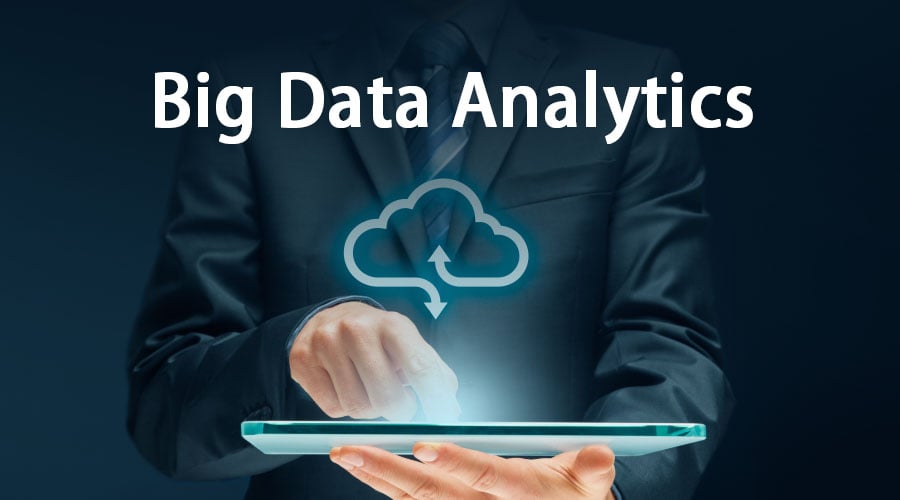Kicking off with Big Data Analytics In Marketing, this revolutionary approach has transformed marketing strategies and personalized customer targeting. From successful campaigns to impactful insights, let’s delve into the world of big data analytics in marketing.
Big Data Analytics plays a crucial role in revolutionizing marketing strategies by providing businesses with valuable insights and actionable information to make informed decisions. By analyzing large volumes of data, marketers can uncover patterns, trends, and correlations that help them understand customer behavior and preferences on a deeper level.
Enhanced Customer Targeting and Personalization
Big Data Analytics enables marketers to target the right audience with the right message at the right time, leading to more personalized marketing campaigns. By segmenting customers based on their demographics, behaviors, and preferences, businesses can tailor their marketing efforts to meet the specific needs of each individual. This level of personalization not only enhances customer experience but also increases the effectiveness of marketing campaigns.
- Through data analysis, marketers can identify high-value customers and create targeted campaigns to retain and upsell them.
- Big Data Analytics allows for real-time tracking of customer interactions, enabling marketers to adjust their strategies on-the-go for better results.
- Personalized recommendations based on past purchases and browsing behavior can drive higher conversion rates and customer loyalty.
Successful Marketing Campaigns Powered by Big Data Analytics
Big Data Analytics has been instrumental in the success of many marketing campaigns across various industries. One notable example is Netflix, which uses data analytics to recommend personalized content to its users based on their viewing history. This approach has significantly contributed to customer retention and satisfaction.
“Data-driven marketing is the future, as it allows businesses to understand their customers better and deliver more relevant and engaging experiences.”
- Amazon’s personalized product recommendations based on browsing history and purchase behavior have led to increased sales and customer engagement.
- Starbucks utilizes data analytics to customize loyalty rewards and promotions, resulting in higher customer retention rates and increased store visits.
- Target’s use of predictive analytics to identify pregnant customers and send them relevant offers before they even knew they were expecting showcases the power of data-driven marketing.
Overall, Big Data Analytics empowers marketers to make data-driven decisions, optimize marketing strategies, and deliver personalized experiences that resonate with customers, ultimately leading to improved ROI and business growth.
Big data analytics plays a crucial role in transforming marketing strategies by providing valuable insights and enabling data-driven decision-making. In this section, we will explore how big data analytics is utilized in various marketing activities to enhance customer engagement and drive business growth.
Big Data Analytics
Social media platforms generate vast amounts of data daily, including user interactions, preferences, and behaviors. Big data analytics helps marketers leverage this data to understand consumer sentiments, identify trends, and optimize their social media marketing strategies. For example, by analyzing social media data, marketers can:
- Track brand mentions and sentiment to gauge customer perception.
- Identify key influencers and target them for partnerships or collaborations.
- Personalize content based on user preferences and behavior patterns.

Optimizing Email Marketing Campaigns with Big Data Analytics
Email marketing remains a powerful tool for reaching customers directly, but personalization and relevance are key to its success. Big data analytics enables marketers to analyze customer data and behavior to create targeted and personalized email campaigns. Some ways in which big data analytics can optimize email marketing campaigns include:
- Segmenting email lists based on demographics, purchase history, or engagement levels.
- Personalizing email content and timing based on customer preferences and behavior.
- Testing and optimizing email subject lines, content, and CTAs for better engagement and conversion rates.
Improving Customer Segmentation for Targeted Marketing
Customer segmentation is essential for delivering personalized marketing messages and offers to different customer groups. Big data analytics plays a vital role in enhancing customer segmentation by analyzing large volumes of customer data to identify distinct segments and their characteristics. With big data analytics, marketers can:
- Identify high-value customer segments for targeted marketing campaigns.
- Analyze customer behavior and purchase patterns to tailor product recommendations.
- Predict customer lifetime value and optimize marketing strategies to maximize ROI.
Tools and Technologies
Big data analytics in marketing relies on a variety of tools and technologies to effectively analyze and interpret large sets of data for actionable insights. These tools play a crucial role in helping marketers make informed decisions and optimize their strategies for better outcomes.
Comparison of Software Tools
- Google Analytics: A widely used tool for tracking website traffic, user behavior, and conversion rates. It provides valuable insights into customer interactions with a brand’s online presence.
- IBM Watson Analytics: Known for its advanced analytics capabilities, Watson Analytics enables marketers to uncover patterns and trends in data, helping in making data-driven marketing decisions.
- Tableau: A powerful data visualization tool that allows marketers to create interactive and visually appealing dashboards to present complex marketing data in a comprehensible manner.
- Hootsuite Insights: Focuses on social media analytics, offering real-time monitoring of social conversations, sentiment analysis, and competitive intelligence for social media marketing purposes.
Significance of AI and Machine Learning
AI and machine learning technologies play a vital role in enhancing big data analytics in marketing by automating processes, predicting consumer behavior, and personalizing marketing campaigns. These technologies enable marketers to analyze vast amounts of data quickly and accurately, leading to more effective targeting and segmentation strategies.
Role of Data Visualization Tools
Data visualization tools are essential for interpreting and presenting marketing data insights in a visually appealing and easy-to-understand format. By transforming complex data sets into interactive charts, graphs, and dashboards, these tools help marketers identify trends, patterns, and correlations within the data, enabling them to make data-driven decisions and communicate insights effectively to stakeholders.
Challenges and Opportunities
Implementing big data analytics in marketing comes with its set of challenges and opportunities that businesses need to navigate to stay ahead in the competitive landscape. Let’s delve into the common obstacles faced by companies and the potential advantages that big data analytics can provide in marketing strategies.
- Lack of skilled professionals: One of the major challenges faced by businesses is the shortage of personnel with the expertise to handle big data analytics effectively in marketing.
- Data quality and integration: Ensuring the accuracy, consistency, and integration of data from various sources can be a daunting task, leading to challenges in deriving meaningful insights.
- Privacy and security concerns: With the increasing focus on data privacy regulations, companies need to navigate the complexities of using customer data while adhering to privacy laws and building trust with consumers.
- Cost of implementation: Investing in the infrastructure, tools, and technologies required for big data analytics can be a significant financial burden for many businesses, especially smaller enterprises.
Opportunities
- Enhanced customer insights: Big data analytics enables businesses to gain deep insights into customer behavior, preferences, and trends, allowing for personalized marketing strategies and targeted campaigns.
- Improved decision-making: By leveraging data analytics, companies can make data-driven decisions that are based on real-time insights and predictive analytics, leading to more effective marketing strategies.
- Competitive advantage: Businesses that effectively harness the power of big data analytics in marketing can gain a competitive edge by staying ahead of market trends, understanding customer needs, and delivering personalized experiences.
- Innovation and creativity: Big data analytics opens up possibilities for innovation in marketing approaches, enabling companies to experiment with new strategies, channels, and technologies to engage customers effectively.
Overcoming Privacy Concerns
- Transparency and consent: Businesses can build trust with consumers by being transparent about how their data is collected, used, and stored, and obtaining explicit consent for data processing.
- Data anonymization: Implementing techniques such as data anonymization and encryption can help protect customer privacy while still deriving valuable insights from big data analytics.
- Compliance with regulations: Adhering to data privacy regulations such as GDPR and CCPA is crucial for businesses to ensure they are handling customer data responsibly and ethically.
- Ethical data use: Companies should establish ethical guidelines for data usage and ensure that data analytics practices are aligned with ethical standards to safeguard consumer privacy.
In conclusion, Big Data Analytics In Marketing offers a competitive edge through enhanced customer segmentation, targeted campaigns, and valuable data insights. Embracing this technology can lead to unprecedented success in the dynamic marketing landscape.







